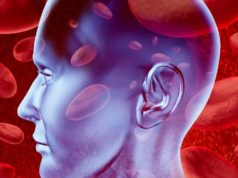
On 4 February 2013, in a study published online in JAMA Neurology, by David Irwin, University of Pennsylvania Perelman School of Medicine, Philadelphia, USA, and colleagues, reported a first group of recipients of cadaver-derived human growth hormone (c-hGH) who do not appear to be at increased risk for Alzheimer and Parkinson disease despite their likely exposure to neurodegenerative disease-associated proteins and elevated risk of infectious prion protein-related disease.
Irwin et al looked for evidence for human-to-human transmission of Alzheimer disease, Parkinson disease, and related neurodegenerative disease-associated proteins in c-hGH recipients. (Image: A=AB, the main component of Alzheimer’s disease-associated plaques, B=Tau, the main component of Alzheimer’s disease-associated tangles, C=Alpha-synuclein, the main component of Lewy bodies in Parkinson’s disease).
The study included 34 routine autopsy patients and a group of c-hGH recipients in the National Hormone and Pituitary Program (NHPP). No cases of Alzheimer’s disease or Parkinson’s disease were identified, according to the study results.
“We found no evidence to support concerns that neurodegenerative disease-associated proteins underlying Alzheimer’s disease and Parkinson’s disease transmit disease in humans despite evidence of their cell-to-cell transmission in model systems of these disorders. Further monitoring is required to confirm these conclusions,” the authors added.









